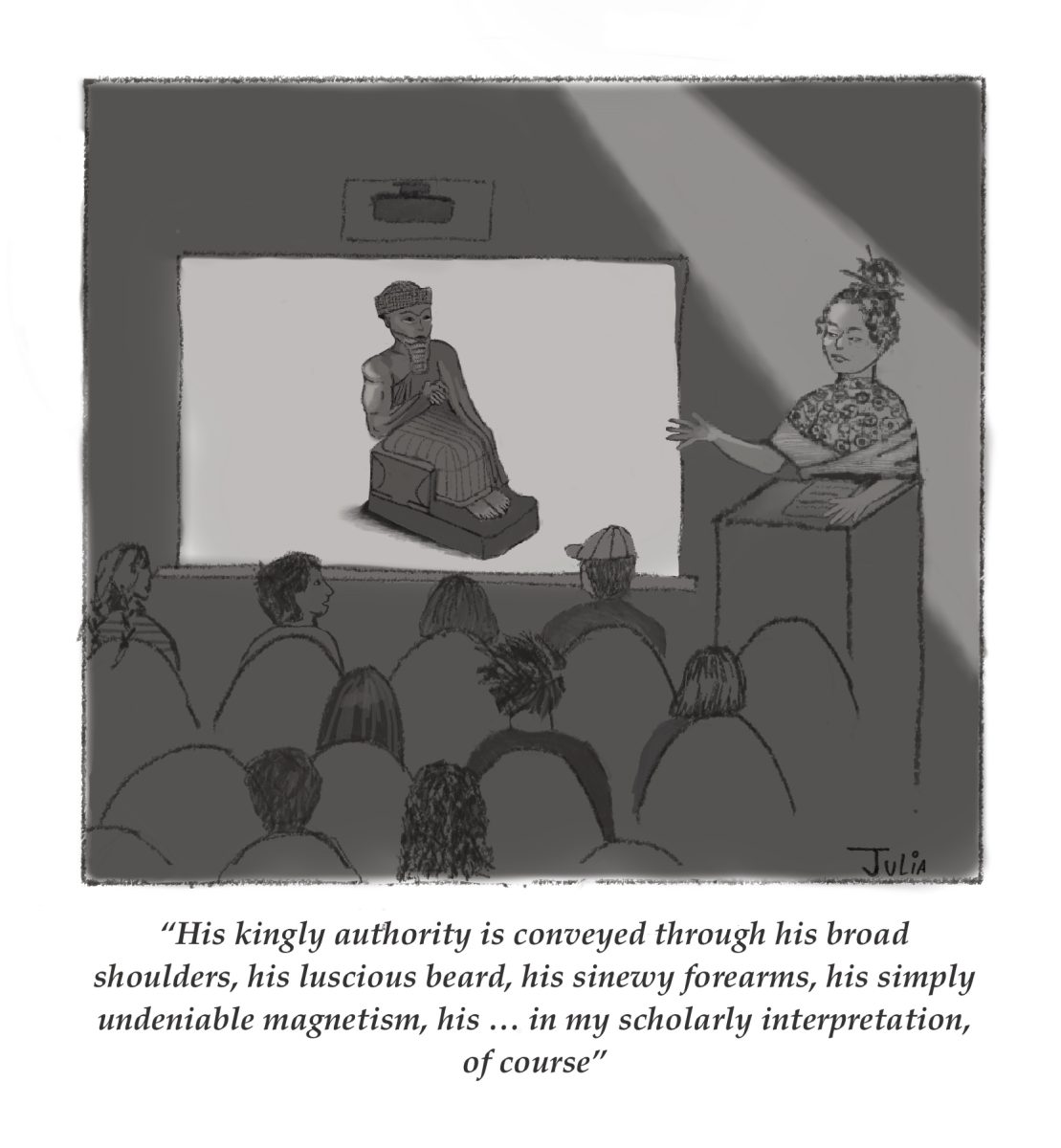When I arrived at the College, I was petrified by the idea of trying something new. Everything seemed outside of my comfort zone. September was chock-full of things and events — everything from First Days, to the first weeks of college-level classes ever, to auditions and applications, and to tryouts for every Registered Student Organization (RSO) on campus. During the Purple Key Fair and club sports fair, I was surrounded by cries of “Join our sport!” and “Join our play!” and “Join our anime club, our social justice group, our church, our everything.”
I come from a tiny school on an unbridged island on the coast of Maine. My school had five sports, no clubs, and a population of fewer than 100 students — that’s K through 12. There were 10 people in my graduating class. To say I don’t have a lot of experience with activities like theatre, ultimate frisbee, or improv comedy is an understatement. This, coupled with my anxiety upon entering a new environment, made it nearly impossible to do anything new.
But, I thought that if things didn’t work out the first year, I could try again when I was a sophomore. Wrong.
As a first-year, you are what the RSO leaders are looking for: You have this fresh perspective and outlook. You can be another ingredient in their creative stew, one who will marinate within the club for the next four years. And, better yet, if you’re coming from an experienced background because you had the opportunity to participate in similar activities in high school, that’s basically a guaranteed in. It turns out RSOs want longevity — to shape their members so that by the end of their time within the group, they have enough experience to continue the traditions and legacy.
The problem is the deceptive promise that some of these RSOs make, saying that they are not looking for people who have done this specific activity before. You can try out for a seemingly chill and low-key club sport, for example, but if you aren’t good enough to begin with, then there may not exist any opportunity to improve. Once the team rejects you, they may offer you a more casual, “beginner-friendly” version of the sport. But these groups are less intense, making it difficult to improve enough to try out again next year.
All of this gives people like me, who have nothing but an open-minded attitude and passion for creative and athletic outlets they were unable to pursue in high school, a serious lack of motivation.
Maybe I’m perceiving everything incorrectly. Maybe I’m genuinely just so bad at everything I try that the directors and presidents of these RSOs shudder with disgust at my name on the Google Sheet I filled out in Paresky and shoo me away. But I wonder: How am I supposed to improve at any of the things that interest me, the things I have the passion but not the talent for, if nobody will let me practice? And what is college if not a practice for the rest of life?
What can we do about it? What do I want to do about it?
We can look toward groups that are doing it right. I have so much respect for the no-application and no-cut programs. Whether they were created for people like me or because there’s not enough demand for a collegiate-level Rocky Horror Picture Show shadow-cast performance, RSOs like People Against Comedy and Mixed Ultimate Frisbee give students the chance to improve one’s skills, either to stay a part of their group, or to try out for groups like the Williams Ultimate Frisbee Organization and Combo Za the next year. It’s easy enough to get together a bunch of people with identical high-level experience, but a lot harder (and more rewarding) to actually teach people things and improve as a group.
Second, I want more options. I mean real options. Who decided to make so many things to do? Why are there still rejects and extracurricular-less people aimlessly wandering around?
If I were to create an RSO, what would be interesting to me, interesting to others, and something that can meet weekly or bi-weekly to create a thing of substance? People who feel unwelcomed by these cliquey RSOs shouldn’t just stand by and do nothing. They should actively seek others who feel similarly and do something about it.
I occasionally float the idea of Party Club, a group that specifically organizes functions, mixers, formals, and other low-key get-togethers for the sake of having something to do Friday and Saturday night. This gets scoffed at and pushed aside, but could we make a GroupMe just to plan what the move is? What is there for the upperclass students who just want something to do, even if they feel like they suck at everything they try? What cures can we create? Let’s make a group just for that.
Lucy Kossuth ’28 is from Northport, Maine.




